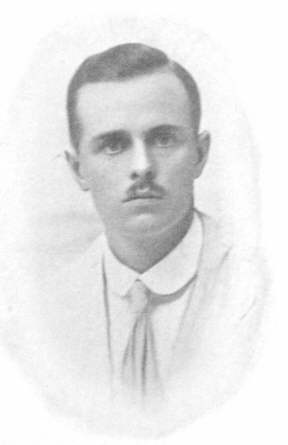 |
Clifton Rugby Football Club History |
|
|||||
|
George Carr Watson |
|||||||
ADVERTISE ON THIS WEBSITE |
Home Founders Benefactors Famous Players Famous Matches Grounds War Memorial In Print Statistics Other Sports Info B In Memoriam |
1860s 1870s 1880s 1890s 1900s 1910s 1920s 1930s 1940s 1950s 1960s 1970s 1980s 1990s 2000s B List of Club Members 1872-1945 B Club Statistics 1872-2011 |
![]()
Captain George Carr Watson - Regiment: Devonshire Regiment Unit Text: 6th Bn. Age: 30 Date of Death: 08/03/1916 Additional information: Son of Edward Guy and Emma Watson, of Mill House, Balk, Thirsk, Yorks. M.A. (Cambs.). Classical Tutor, Colston's School, Bristol. Casualty Type: Commonwealth War Dead Grave/Memorial Reference: Panel 11 Cemetery: BASRA MEMORIAL
 |
| Standing (L-R): F.D.Andrews, E.Taylor, C.M.Welsby, N.Durant, H.V.Thomas, F.S.Woodley, A.B.Sellman. Sitting: G.H.Gibbs, V.F.Eberle, J.A.Dommett, Mr.H.W.Beloe, R.S.Witchell, H.H.Hutchinson. On Ground: G.E.Cripps, G.C.Watson, E.H.Addenbrooke, R.I.Hawkins. |
Above Clifton XV of 1913-14 with George Carr Watson.

Above George Carr Watson
He joined Clifton Rugby Club in 1912-13. He was educated at Cambridge University. He was a Classical Tutor at Colston's School, Bristol.
He joined the The 6th Devonshire Regiment. They were based in Barnstable in 1914 and sailed to India on the 9th October 1914, landing at Karachi on 11 th November 1914. On the 5 th January 1916 they landed at Basra, and remained in Mesopotamia for the rest of the war.
Originally scheduled to begin on 6 March, but postponed on account of heavy rainfall. The Battle of Dujaila was fought on March 8th, 1916, between British and Ottoman forces. The Ottoman forces, led by Colmar Freiherr von der Goltz were besieging Kut, when the British, led by Fenton Aylmer,attempted to relieve the city. The attempt failed, British losses in this action were 4,000 killed and wounded. The British had lost half their force without ever seeing the enemy. There was once again a complete breakdown of medical arrangements due to the overwhelming number of casualties, the weather and ground conditions. Some units were so reduced by casualties that they had to temporarily merge with others. Watson was one of the casualties.
He is commemorated on the Basra Memorial, until 1997 located on the main quay of the naval dockyard at Maqil, on the west bank of the Shatt-al-Arab, about eight kilometres north of Basra. Because of the sensitivity of the site, the Memorial was moved on the orders of President Saddam Hussein. The move, carried out by the authorities in Iraq, involved a considerable amount of manpower, transport costs and engineering on their part, but the memorial was re-erected in its entirety. The Basra Memorial is now located 32 kilometres along the road to Nasiriyah, in the middle of what was a major battleground during the first Gulf War of 1991. It commemorates more than 40,500 members of the Commonwealth forces who died in the operations in Mesopotamia from the Autumn of 1914 to the end of August 1921.

Above the original location of the Basra Memorial in the 1930s. Image coutesy of Frank Shaw see http://www.breckland-rollofhonour.org.uk/

Aobove the current Basra Memorial in 2006. Image coutesy of Frank Shaw see http://www.breckland-rollofhonour.org.uk/


Above Memorial in Dining Hall at Colston Collegiate School with Clifton RFC's George Carr Watson.